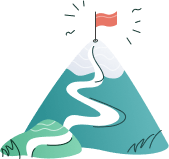You're Not An Expert, Shut Your Mouf!
I had a discussion in the Live Chat here at WA a few days back that was very intriguing. It was the idea that if you are not an expert at something, that you shouldn't be qualified to help others in that given niche. In other words, if you are not an "expert", shut up.
This is misguided for many reasons, so I thought I would spend some time elaborating on the idea of expertise, and what defines that within the online world. Can you be an expert in a new niche? How could you ethically qualify yourself as an expert? What even is an expert?
Lots of questions around this topic are confusing, complex, and often times misunderstood. Let's dive into this topic.
Can YOU Be An Expert in a New Niche?
10 years ago I wrote an article on "organic milk benefits or children". This was a trending search at the time, and I wanted to monopolize on this for a case study. This article predated me having children (I have two girls now), so I didn't have a lot of familiarity with this segment. I also didn't have any experience within the Dairy industry, though my mom worked as an account for a dairy when I was much younger...which didn't equate to any useful knowledge, other than FREE buckets of ice cream on the regular.
So what I did, was I spent some time researching the content. I learned about organic milk, and I learned about the benefits of it over non-organic, and then I investigated why this would be beneficial to children, whom I learned consume milk at a much higher rate than adults.
Then I wrote the article based on my research (see below)
The result, an article that ranked #1 in Google for well over 8 years and received 10,000's of unique visitors. It drove a great deal of Adsense revenue, though that was not my intent (it was done more as a case study). And at the end of the day I was able to help a lot of people understand the organic milk benefits for children, and attain a much higher level of knowledge about this topic ass a result of my article.
Would you deem me as a child expert, or a dairy expert, or anything remotely close to an expert at this topic? No. Was I able to help people, and did Google view my article as being the best one available on the topic for 8 years running
The answer is Yes.
Most people view an expert as someone that has spent 10 years perfecting a practice. As Malcolm Gladwell indicated, it takes 10,000 hours to become an expert at something. While that may remain true for becoming an expert violinist or actor...an expert in a niche in an online business doesn't have to be expert at the trade.
I can create a basketball blog, and the top one in the world, without playing in the NBA. I could help people learn how to shoot a free throw, and become a well-skilled player. I could effectively review products/services in the industry and provide detailed insight.
I can become a million dollar food YouTuber without going to Le Cordon Bleu culinary school in Paris, France. In fact, I would argue that going to that school and even thriving as a chef doesn't make you any more qualified to teach the subject from someone that creates well researched, and easy to understand content created on Youtube.
And that leads me to the concern of "ethics", and the relationship between expertise and authority.
How Could You Ethically qualify yourself as an expert?
There is a great concern about the ethics about offering "advice" on a topic, that perhaps you haven't spent 20 years involved in.
For an example of this, that runs in parallel with expertise and authority, is our Judicial system and in particular, judges. Most people don't realize that a judge is a lawyer, that has been moved up the chain of command to become
Lawyers get their expertise in a particular practice. They could be a defamation lawyer, a divorce lawyer, and land titles' lawyer. The thing is, it isn't dependent on their expertise on a particular subject rather their understanding of how the legal system works. It is unlikely that within 90% of the cases they get, they will understand the actual case law, as they will be irrelevant to their experience. They could be a divorce lawyer, judging a defamation case. So they are not experts, rather they are authorities.
Now this is just one example of many. The thing is, if you understand how to research, you can effectively and ethically become an authority in any niche. Your goal is to teach people, to help people, to inform people, and to help them solve their existing problems.
I can't sew. I can teach people how to sew online. I can't play a guitar. I can surely help people learn how to play a guitar online. I am a borderline decent chef, I could create a thriving food blog (and even Youtube channel) online.
And in the process, I could create MUCH better content than what is out there. I could inform people better. I could offer better product reviews than current exist. I could help people, and in the process create a brand that people trust.
Without an ounce of prior knowledge. And done so ethically.
So you become an expert with experience in a craft, but you become an AUTHORITY by helping others gain experience at a craft. You can become both of these as you immerse yourself within any niche. If you are already an expert at something, you will still need to learn how to educate people and help others gain expertise. That is your ultimate goal.
So Again, What Even is an Expert?
That is the question I want you to once again, think about. What is an expert? YOU are an expert, at anything you want.
Recent Comments
180
Thanks Kyle
I feel I am an expert within my own experience if that makes sense.
When I read another's Blogs I go at it open-minded without any initial judgement. Realizing it is an individual providing information. Expert or not matters not. It is the quality of the article I am wanting to consume. Sometimes I feel it is adequate information and sometimes not.
Yes, you likely are an expert at many different things. That expertise, was accrued with time...and the reality is, that with time you can become an expert within any segment that you want. That will simply happen with time, and as others define you as an expert through the help you offer.
In terms of an article or particular topic, research (often times simple) will lead you to being able to offer a "expert" article. This can happen within a matter of an hour of knowing, and understanding a topic.
I agree. When I'm looking for information on a topic, and I come across someone's article, Pinterest post, whatevs, and I find some useful information that saves me a bit of time, I'm grateful. Yes, I still have to vet the information, but if someone has gathered together some good links and I don't have to wade through all that dreck myself, it's a good thing. So, no, no one should feel like they have to "shut up" just because they don't have a certificate or 10,000 hours in some subject. Just some diligent effort, clear content, attractive, easy-to-follow presentation . . . that's all it takes to be very, very useful.
Exactly, you are saving people time and in essence, doing the research for them and presenting with solutions to their problem in an easy to understand way. If you can do that, they will view you as the expert.
Kyle, thank you for clarifying and demystifying the issue that plagues most bloggers. Thanks also to the others for their comments and especially to LDSewell for supplementing Kyle phenomenally, sharing his experience with the rest of us, and adding value to the post.
It is common knowledge that public education with its poor program has not contributed much to the education of the population. That is why self-education is the right path for someone who is really eager for knowledge. Especially nowadays when so much information is available. But such a huge amount of information requires both criticality and the ability to distinguish the quality and verified information from bad
which is also the lack of self-education and gathering information on such a huge medium as the Internet.
This article-post and the comments with it are very useful and motivating.
Thank you all for your contribution.
Self education, and the capability of educators are things that are going to remain very important moving forward. We can educate one another, we can speed up the process of educating one another...and we can become authorities in the process.
Really glad you enjoyed this article! ;)
This is perfect! I think the feeling of imposter syndrome can creep in like we haven’t been doing this forever, or the niche we’re selling we aren’t an “expert” and don’t belong actuallly doing this. But we do belong doing this if we are sharing real info, and being honest. And I’ll take help from anyone. We can keep what helps and leave the rest
An expert is your ability to help someone accomplish something. That is not dependent on you being skilled at something, it is dependent on your ability to be able to help others.
See more comments



Very interesting topic! In my world however, being in the health field, EXPERT is always regarded as a person of authority. Someone who had helped another, will not be regarded as an expert, although "help" can be perceived differently, on all different levels, or I may be reflecting an old school of taught ( as I am old anyway -LOL )
Well if you go a doctor, you don't know their history or experience. You "assume" expertise, because of their position, and you trust them on that basis.
But if you are looking for information online about a particular topic, you don't assume anything typically...you base your determination of expertise on the content that you see in front of you, the trustworthiness of it, and the ability of that content to help you.
Trustworthiness is also based on prior knowledge. Somehow, trustworthiness is being developed basing on one’s awareness of something, and is further confirmed with more information.
Like, fever, one would know that it is an increase in a person’s average body temperature. That was the prior knowledge. As you come to see a doctor, the cause of the fever is identified after series of diagnostic tests. Then treatment is established. Trustworthiness, then, is furthered as the authority (doctor) defined the problem by explaining what caused the fever, with subsequent treatment prescribed